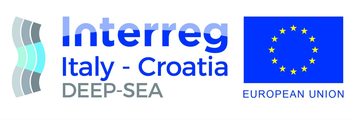
DEEP-SEA – Development of Energy Efficiency Planning and Services for the Mobility of Adriatic MARINAs
Summary and general objective
Nautical marinas (harbours for sailing and motor boats) along the Adriatic Sea are the main tourism hubs for inward and outward mobility flows. Marinas spread along the Adriatic seacoasts, generate a considerable number of different types of mobility and transport flows, both inside and outside marinas with huge negative environmental externalities, like CO2 emissions, noise pollution and traffic congestion. Road and maritime transport are the most polluting and the most used ones, while other types, even if less harmful to the environment, are less commonly present.
Public Administrations (PAs) and mobility operators made great steps forward in the mobility sector, developing, promoting and implementing different set of mobility services with low or zero negative impacts, such as electric vehicles (e-vehicles) and boats (e-boats), electric charging stations (ECS) for cars and boats, e-vehicles rental and sharing. However these services are rarely offered in nautical marinas, most of which usually offer highly polluting services, i.e. endothermic engines cars and motorbikes, and very few offer some kind of sustainable services, such as bike and car rental and sharing. Furthermore solutions provided are little integrated in a unique offer.
The challenge to decrease the environmental impacts of mobility activities gravitating around marinas could be effectively faced with more systemic, integrated and multimodal mobility services put in place. DEEP-SEA aims to tackle the problems of predominant single-modality land transport (cars), highly polluting maritime transport (motor boats with endothermic engines) and limited integration of mobility services offered in the sector described above. The project, through the development of a model, based on a strong scientific knowledge and tested on field, wants to support marinas operators (MOs) and PAs in planning and implementing sustainable mobility. Planning will increase the offer of energy efficient mobility services, mainly e-mobility and shared mobility, and will lead marinas to tackle the increasing demand of ECS for e-boats. DEEP-SEA established a partnership with important stakeholders such as MOs, Chambers of Commerce, PAs and 3 of the best Universities in this sector in the Adriatic Area. Partners have selected 4 pilot sites for the tailor-made investment plans to test the start-up of new services and installations.
DEEP-SEA will deploy an ICT application to enable end-users to map, access, book and pay the service. The application will represent a unique web-portal for the promotion of sustainable mobility offers through which services will be spread to other Adriatic locations. DEEP-SEA will define a Guidelines for elaboration of intervention and investment plans related to mobility services and will activate a cross-border network in order to replicate the positive effects of sustainable mobility services developed within the project.
Specific objectives
- Enhance MOs’ & PAs’ competences to plan and implement energy efficient mobility services.
- Increase marinas’ innovative and sustainable mobility service offer for passengers.
- Enlarge cooperation on sustainable energy efficient mobility among marinas in Adriatic Sea area.
Main activities
- A complete picture of the best available technological and organizational solutions on energy efficiency and sustainable mobility for coastal and nautical mobility.
- Financial and investment model with focus on the features and services to improve marinas accessibility from/to inland (land side) and from/to sea side (nautical side).
- The updated vision of the current mobility services and passengers flows in marinas pilot sites, with analysis of energy consumption, baseline for the definition of future accessibility (cost and time) and energy consumption and emissions reduction.
- Pilots monitoring and measurement methodology to ensure coherence with project and programme objectives.
- Installation of e-charging stations and micro-grid systems, start-up of e-car sharing services, e-scooter sharing, e-car mobility service.
- Model for elaboration of intervention and investment plans related to mobility services based on the pilots results and on the scientific knowledge, tested on the field.
- Monitoring and promotion system: project activities will include the development and application of information and communication technologies (ICT) system both for the management and monitoring of services (e.g. ICT for charging infrastructures and sharing) and for their use by end-users.
Expected results
The overall project objective is to improve current marinas mobility services and turn them into low-carbon or zero emission, environmentally friendly and energy efficient systems. Planned project results:
- Improved sustainable passengers mobility services in or connected to nautical marinas across the Adriatic Sea.
- Increased competences of decision makers and operators involved in marina mobility management.
- Integrated management, cooperation and networking between MOs, Universities and PAs on both sides of the Adriatic Sea.
The project Lead Partner is the ARIES Special Agency Venezia Giulia Chamber of Commerce. The Faculty of Civil Engineering, Architecture and Geodesy in Split (UNIST-FGAG) is one of five project partners from Croatia (University of Rijeka, County port authority Krk, Municipality of Malinska-Dubašnica, Public institution RERA SD and H.L. Dvorac Ltd.), and a total of four from Italy (University of Trieste, Chamber of Commerce of Foggia, Municipality of Andria and Apulia Region). UNIST-FGAG is in charge of implementing the Work Package 4 - Pilots: small technological investments, equipment installations and new services start-up.
The project is funded under the 2014 - 2020 Interreg V-A, Italy-Croatia CBC Program. The total value of the project is € 2.511.567,50 of which 85% is funded from the European Regional Development Fund. The estimated duration of the project is the end of June 2021.